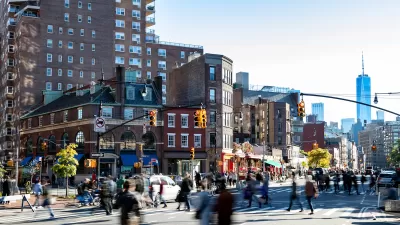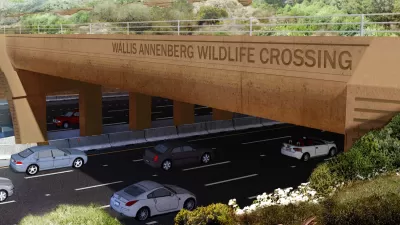A simple case of City Council rejecting a zoning change for a new solar facility blew up into an international case of clickbait trolling.

"The Woodland Town Council rejected a proposal to rezone a section of land north of town to M2 (manufacturing) from RA (residential/agricultural), essentially denying approval of a solar farm," reports Keith Hoggard for the Roanoke-Chowan News-Herald.
The decision ignored the recommendation of the town's Planning Board to allow the rezoning and reversed a trend that allowed three solar energy facilities to gain approval in the area surrounding an electrical substation in the area.
That all seems like a run-of-the-mill example of politicians splitting from the advisory role provided by planning bodies, yet this story got picked up by international and national news sources. That's because testimony by Bobby and Jane Mann inspired an international deluge of trolling. An article by Samuel Osborne focuses especially on the comments of Bobby Mann, who "said the solar farms would suck up all the energy from the sun."
The public response to the media response to the local zoning controversy even inspired fact-checking website Snopes to chime in whether the story is factual or not. Kim LaPria's verdict: the story is mostly true. The town did reject the solar facility and Bobby Mann did give that testimony, but the city rejected the zoning change for reasons having more to do with property values and the local economy than with such a fundamental underestimation of the sun's power.
FULL STORY: Woodland rejects solar farm

Pennsylvania Mall Conversion Bill Passes House
If passed, the bill would promote the adaptive reuse of defunct commercial buildings.

Planning for Accessibility: Proximity is More Important than Mobility
Accessibility-based planning minimizes the distance that people must travel to reach desired services and activities. Measured this way, increased density can provide more total benefits than increased speeds.

World's Largest Wildlife Overpass In the Works in Los Angeles County
Caltrans will soon close half of the 101 Freeway in order to continue construction of the Wallis Annenberg Wildlife Crossing near Agoura Hills in Los Angeles County.

Eviction Looms for Low-Income Tenants as Rent Debt Rises
Nonprofit housing operators across the country face almost $10 billion in rent debt.

Brightline West Breaks Ground
The high-speed rail line will link Las Vegas and the Los Angeles area.

Colorado Bans No-Fault Evictions
In most cases, landlords must provide a just cause for evicting tenants.
City of Costa Mesa
Licking County
Barrett Planning Group LLC
HUD's Office of Policy Development and Research
Mpact Transit + Community
HUD's Office of Policy Development and Research
Tufts University, Department of Urban and Environmental Policy & Planning
City of Universal City TX
ULI Northwest Arkansas
Urban Design for Planners 1: Software Tools
This six-course series explores essential urban design concepts using open source software and equips planners with the tools they need to participate fully in the urban design process.
Planning for Universal Design
Learn the tools for implementing Universal Design in planning regulations.


























